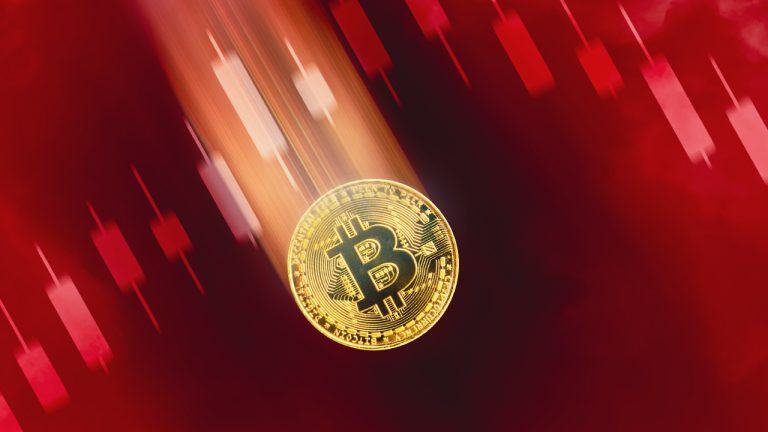
Is China’s Crypto Ban a Boon for Decentralization?

HodlX Guest Post Submit Your Post
On the heels of China’s recent crackdown on cryptocurrency, traditional cryptocurrency exchanges are beginning a rapid pullout from one of their biggest markets.
Banks and payment gateways must also cease providing services to cryptocurrency exchanges in China. However, Beijing’s new regulations address only centralized exchanges (CEXs) i.e., those platforms that are controlled by a single entity or company like Binance, Huobi or KuCoin.
Decentralized exchanges (DEXs), or those platforms without a single controlling entity, continue to trade.
For years crypto enthusiasts have touted the benefits of decentralization, especially censorship resistance, distributed governance and shared profits, all while leaving their holdings on CEXs.
Back in 2017, Bancor launched the first-ever ‘automated market maker,’ and with it outlined a vision for the future of decentralized trading and liquidity provision. Soon after that platform went live, analysts began to speculate that DEXs would soon overtake centralized exchanges in terms of trading volume.
However, the early years of decentralized trading were hindered by a lack of liquidity and high slippage on trades of even popular assets like Ethereum. This meant that the large order books and eye-watering liquidity of CEXs were too attractive for traders to foray into DeFi.
This all changed during the ‘DeFi summer’ of 2020 when hundreds of millions of dollars piled into DEXs such as Uniswap and Bancor, often surpassing liquidity seen on centralized platforms. Trading volume on DEXs has since steadily grown, but recent events suggest more users and trading volume will soon find their way to DEXs.
On Friday, September 24, 2021, The People’s Bank of China (PBOC) which exercises regulatory control over one of the world’s largest cryptocurrency markets declared that all cryptocurrency transactions are “illegal financial activities,” adding that the crypto industry “seriously endangers the safety of people’s assets.”
The news predictably triggered a major panic sell-off of Bitcoin, but before long, investors turned their attention to decentralized assets most notably DEX tokens in anticipation of a surge in DEX trading following China’s ban.
The rapid shift in sentiment may mark a watershed moment for cryptocurrency pioneers who market decentralization as the future of finance.
Since the end of last week, decentralized trading protocols have started to see dramatic surges in trading activity. dYdX, for example, saw $4.3 billion in trading volume over the 24-hour period between September 26-27, 2021, edging ahead of Coinbase by a full 15%.
The largest DEXs are now poised to welcome fleets of new crypto users looking to bypass China’s regulations. Investors outside of China, taking note of the rapid shift from traditional exchanges in recent days, have clearly seized on the opportunity.
Uniswap’s token UNI soared 32% on Friday’s news, while its smaller cousin Sushiswap rose 20%. Uniswap is now flirting with a breakout from its four-week average, while BNT Bancor’s native token increased nearly 10% and has seen considerable strength since Friday, looking poised for a major breakout. This is contrasted with centralized platform Huobi, once popular in China, declining by 40% in the last week.
Meanwhile, Bancor has revealed plans to launch a new version of its protocol, Bancor V3. While specific features of its V3 have yet to be announced, developers have indicated that the new version will introduce a novel mechanism to maximize liquidity provider returns and increase trade volume on the network.
Bancor broke ground in 2020 with the unique solution to allow users to earn yield on volatile tokens with no risk of ‘impermanent loss’ a thorn among roses for DeFi users. With the much-anticipated V3 release on the horizon, a BNT price surge is not out of the question.
Other native DEX tokens to keep an eye on in the coming weeks include those of Curve (CRV), a popular place to trade and stake stablecoins, 1inch (1INCH), the main DEX aggregator and 0x (ZRX). For its part, Curve has seen an uptick in activity following its expansion to layer 2 Ethereum scaling solutions and competing layer 1 blockchains like Avalanche and Fantom.
Will China’s crackdown finally spur the much anticipated centralized-decentralized flippening? The success of dYdX over the past few days, coupled with the rapid accumulation of DEX assets, suggests that traditional crypto trading may undergo its biggest overhaul to date.
Simon Hammerschlag is a technology and finance advisor working at the forefront of fintech and cryptocurrency. He is a co-founder of HAT Partners (Hammerschlag, Alter and Tulsen), an organization helping Asia-based clients navigate and invest in new technologies.
Follow Us on Twitter Facebook Telegram
Disclaimer: Opinions expressed at The Daily Hodl are not investment advice. Investors should do their due diligence before making any high-risk investments in Bitcoin, cryptocurrency or digital assets. Please be advised that your transfers and trades are at your own risk, and any loses you may incur are your responsibility. The Daily Hodl does not recommend the buying or selling of any cryptocurrencies or digital assets, nor is The Daily Hodl an investment advisor. Please note that The Daily Hodl participates in affiliate marketing.
Featured Image: Shutterstock/hallojulie/REDPIXEL.PL
The post Is China’s Crypto Ban a Boon for Decentralization? appeared first on The Daily Hodl.
Go to Source
Author: Simon Hammerschlag









